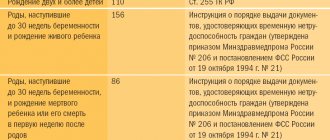When purchasing a home, it is important to remember that the actual transfer of title does not occur when the seller and buyer sign the contract. The fact of leaving signatures on the contract form is a transaction that must undergo state registration.
Dear readers! Our articles talk about typical ways to resolve legal issues, but each case is unique. If you want to find out how to solve your particular problem, please use the online consultant form on the right or call. It's fast and free!
Re-registration of ownership is carried out by the state organization Rosreestr. The actual transfer of ownership of the house will occur only after making appropriate changes to the Rosreestr database.
The material presented in this article will help clarify the issue of cost, re-registration procedure, as well as the necessary documents
Cost of re-registration of a house
The cost of re-registration includes various costs.
| № | Item name | Cost of the service for individuals | Cost of service for legal entities | |||
| 1 | Obtaining an extract from the Unified State Register of Real Estate | on the State Services portal | For free | For free | ||
| in Rosreestr | On paper | RUB 300.00 (state duty) | RUB 900.00 (state duty) | |||
| 2 | Obtaining a cadastral passport | On paper | RUB 200.00 (state duty) | RUB 600.00 (state duty) | ||
| Electronic | RUB 150.00 (state duty) | RUB 600.00 (state duty) | ||||
| 3 | Registration of a cadastral passport | ~ 5000.00-10000.00 rub. | ||||
| 4 | Legalization of unauthorized buildings | From 25,000 rub. | ||||
| 5 | Geodetic works | RUB 10,000.00 | ||||
| 6 | Registration of ownership | RUB 2,000.00 (state duty) | ||||
Good to know! This table shows approximate prices, which may vary depending on the complexity of the case. The amount of these state fees is fixed and does not change.
How to re-register a house when buying?
There are two ways to re-register a house that has been purchased:
- Contact an experienced lawyer or real estate agent.
- On one's own.
In the first case, everything is clear. After paying the commission, the specialist will do everything necessary. The client will only need to provide a purchase and sale agreement and write a power of attorney to represent his interests by a specialist.
Lawyers advise! For the second method, you must have certain knowledge in the field of civil law. This process is multi-stage and requires careful attention at each stage. Also, during the re-registration of a house with unauthorized construction, you will have to familiarize yourself with the laws governing the procedure for their legalization.
Re-registration procedure
The procedure for re-registration of a house is fixed in:
- Civil Code of the Russian Federation.
- Federal Law No. 218 of July 13, 2015 “On state registration of real estate.”
- Federal Law of December 30, 2009 No. 384-FZ “Technical Regulations on the Safety of Buildings and Structures.”
- Federal Law No. 4462-1 of February 11, 1993 “Fundamentals of the legislation of the Russian Federation on notaries.”
- Federal Law of July 24, 2007 No. 221-FZ “On the State Real Estate Cadastre”.
This procedure includes:
- preparation of documents;
- drafting documents for transfer of ownership;
- carrying out a transaction with a house;
- preparation of documents for filing an application for registration;
- checking the set of papers and making a decision on the possibility of registration;
- entering changed information into the database;
- issuance of a confirmation document.
Required documents for the seller
Wanting to sell his property, the seller must be prepared for the fact that compliance with all legal requirements will necessitate additional actions.
Such actions will be aimed at preparing the papers that are necessary to conclude a transaction and its subsequent registration.
The seller has the following list:
- Document basis of ownership.
- Extract from the Unified State Register of Real Estate.
- Certificate of absence of debt.
- Extract from the house register.
- Copy of the bill (housing department).
- Cadastral passport.
- Explication.
- Floor plan.
Possible methods
Re-registration of an apartment invariably involves paperwork. Today, there are several ways to reissue a certificate of ownership.
It is used mainly to re-register an apartment to another owner who is not related to the owner by kinship. If you want to register an apartment in the name of a relative in this way, you can sell the property for a symbolic price.
How much does this method cost? You need to pay for the services of a notary who will accompany the transaction, and the state fee for re-issuing the state registration certificate.
Here, the parties to the transaction simply exchange existing living space. In this way, you can transfer ownership to another person and avoid paying income tax.
Give
This option is suitable for those who register housing in their own name, entering into inheritance rights. You can re-register the certificate in your name by will or by common law. In any case, you will have to wait 6 months.
Now let's talk about how to re-register ownership in specific situations.
How to re-register an apartment in the name of a relative, wife or brother?
The most convenient way for children and parents is to transfer property rights by gift or inheritance.
For spouses, after a divorce, a purchase and sale agreement is preferable.
Such an agreement can be concluded between almost all legally capable persons who are in a sane state. If necessary, a principal may act as a representative of one of the parties, for whom a notarized power of attorney must be issued.
What documents are needed to re-register an apartment?
Before concluding a contract, you need to prepare the following list of documents:
- Application for registration of a transaction;
- A purchase and sale agreement signed by all parties;
- The acceptance certificate signed by the parties to the transaction;
- Technical passport from BTI;
- Copies of passports of the parties to the transaction;
- If necessary, the consent of the spouse to complete the transaction in writing and certified by a notary;
- Receipt for payment of state duty;
- If working through a representative, the latter must have a notarized power of attorney;
- If necessary, a loan agreement with a bank;
- If necessary, a copy of the court decision declaring any of the participants incompetent or capable, but with restrictions;
- If children are involved in the transaction, their birth certificates must be provided, as well as the written consent of the guardianship authorities.
The apartment will be re-registered within 14 days from the date of submission of the application, you can also submit the collected package of documents to the MFC and receive the required documents within a week.
In special cases, the re-registration period can be reduced to three or five days. To do this, you will need to write an application addressed to the head of the Companies House and indicate valid reasons why the process should be accelerated.
Terms of re-registration
To find out how long it takes to re-register a house, you need to understand that re-registration includes several stages, including:
- Preparatory stage. At this stage, the seller prepares a package of papers that are necessary when signing the contract. The seller can collect all statements independently, or through a representative.
- Drawing up and signing a contract. This stage is characterized by all approvals on the possibility of completing a transaction. During this period, lockers are ordered from a banking institution where funds will be stored.
- Signing the contract. Having signed the transaction, the parties submit signed forms for further registration actions to transfer ownership from the seller to the buyer.
- Carrying out direct actions by the registrar to make changes to the Rosreestr database. Having received the application with the documents attached to it, the registrar carries out: data reconciliation, checking the completeness of the papers and, making sure that everything is in compliance with the current legislation of the Russian Federation, carries out registration.
- Obtaining an extract from the Unified State Register of Real Estate. The law sets a period of 12 days for the registrar to carry out actions directly.
How long does it take to complete the purchase and sale of an apartment?
According to the legislation of the Russian Federation, any real estate of citizens is subject to registration.
Just as it is necessary to register an apartment, house or room, it is important to know that non-residential premises located on land plots owned by the person wishing to register are also subject to registration. Until 2021, in order to register buildings on a land plot, citizens submitted a declaration. With the introduction of the new law, the declaration was replaced by a technical plan. Let's look at this procedure in more detail, and also find out how the registration of buildings on a summer cottage takes place.
In order to figure out where exactly to submit the package of documents, you need to understand which buildings on the site must be registered.
Registration of rights to buildings, as well as to a land plot, gives the owner the opportunity to fully dispose of his country property.
Otherwise, real estate transactions (sale, rental, exchange, donation, inheritance, etc.) will become impossible. And this is the key point of the act of owning property.
What buildings are subject to registration on a summer cottage? First of all, this is the residential building itself - the building in which the owner and his relatives live during the summer season and beyond. In the same way as an owned apartment must be registered, a country house is also subject to documentation.
If this is not done, when selling a privatized land plot, it will not be possible to formalize the sale of the house - it will be used as a “free application” to the hundred square meters.
In addition to a residential building, it is necessary to register the following detached buildings:
- Garages.
- Baths.
- Various types of sheds, chicken coops and other permanent structures.
- Individual residential buildings.
All of the above buildings must be properly documented.
However, not all construction projects on the site must be registered - there are a number of buildings that do not require registration. As a rule, we are talking about oversized buildings for economic purposes that do not have a foundation - unless there is a permanent construction.
- gazebos;
- greenhouses;
- awnings;
- showers;
- toilet;
- barbecue area.
In order not to be mistaken whether registration of a building on a land plot is required, one should resort to the Civil Code of the Russian Federation, namely Article 130. The comments to it list all the signs by which a building on a plot can be qualified as subject to registration. Here they are:
- The building must have a foundation.
- It is impossible to separate the building from the foundation without causing irreparable and disproportionate damage to it.
- The construction must be connected to utilities - water supply, electricity, sewerage, etc.
- The building material used in the construction of the building must be solid, that is, not consist of prefabricated parts.
If the building falls under at least one of these criteria, it is important to register the building located on the land plot.
Dacha amnesty
As you know, the process of registering large valuable property is almost always associated with difficulties in preparing related documents, as well as with large time and energy costs. Sometimes financial aspects play an important role in this matter. In order to make this process a little easier, there is a so-called dacha amnesty.
What it is
The dacha amnesty refers to the Federal Law “On Amendments to the Land Code of the Russian Federation and Certain Legislative Acts of the Russian Federation”, reissued in 2014. The law simplifies the registration of land purchased or acquired by individuals as property, as well as the privatization of buildings located on this site.
Often (especially in the case of transfer of a plot by the state for lifelong use), the owners do not have a complete package of documents confirming ownership. Thus, ownership of land is limited only to its use. The owners cannot complete a transaction with the plot.
The dacha amnesty will last until the end of 2021. Its meaning is that land owners can register ownership of the land and buildings on it according to a simplified scheme and with minimal financial costs. At the end of the program, registering land and buildings will become much more difficult.
The main innovation compared to previous standards was the introduction of a technical plan. Previously, land owners submitted a declaration for registration, which they filled out with their own hands.
Since this document was often submitted with intentional errors (for example, applicants indicated in the declaration a smaller housing area than it actually was - to reduce the tax), it was decided to replace the declaration with a technical plan.
This document is prepared by professionals - cadastral engineers. You can contact the BTI for their services; the cost of preparing a technical plan varies, but, as a rule, is no less than 8 thousand rubles. The engineer will need up to 10 days to prepare the document.
Important: the cadastral specialist must be qualified and have a certificate. If the technical plan is drawn up with errors or does not meet the requirements, it will have to be redone.
Despite the fact that the dacha amnesty has existed since 2006, this law is constantly undergoing changes. So, for example, since 2017, a mandatory document for registering ownership of a dacha is a building permit.
An occupancy permit may also be required, but it is not necessary to obtain one before March 1, 2021. If a document is still required, you should contact your local town planning authority for it.
Persons entitled to take advantage of the procedure for registering a house and buildings under the dacha amnesty include the owners of the plot with documents for land ownership. To register, you will need to confirm your ownership.
Private individuals whose land is in lifelong use, as well as citizens who own a plot on the territory owned by a legal entity and use it for gardening, gardening and summer cottage work, can also register buildings under the amnesty.
If ownership of a land plot is registered, it must be purchased or received before October 30, 2001. This rule does not apply to buildings.
After we have figured out what a dacha amnesty is and which particular buildings need to be formalized, we will consider in detail how to legalize construction on a dacha plot.
Package of documents
applicant's passport;
- a document of title confirming the fact of ownership of the land on which the building requiring registration is built;
- cadastral plan of the land (not required if the plot is already registered and information about it is available in the Unified State Register of Real Estate);
- technical plan;
- passport for a residential building (if it is this that is being registered; if the passport is missing or lost, you will have to prepare a cadastral plan, which is not cheap);
- declaration (actually cancelled, but in some areas it is still requested simultaneously with the technical plan);
- receipt of payment of state duty.
We invite you to familiarize yourself with: Types of gift agreements and their understanding, features and differences
Documents are submitted to the MFC or Rosreestr and are reviewed within 30 days.
Registration stages
Before registering buildings on a dacha plot, it is necessary to confirm ownership of the acres on which the buildings are located.
If the land is owned, title documents must be provided. If not, you need to obtain a document confirming ownership from the local government authority.
For example, an agreement that the site is provided for indefinite use.
Next, the building should be registered with the cadastral register. This procedure is accompanied by the issuance of technical and cadastral passports. The necessary measurements are carried out by specialists from the BTI, after which a technical passport is issued. A cadastral certificate can be obtained on the basis of a technical passport, with which the applicant applies to the Cadastral Chamber.
After the documents are accepted and if everything is in order, registration actions in Rosreestr will take 7 working days. Through the MFC, the procedure will take a little longer - 9 days.
As soon as the registration of a house or building is completed, information about the buildings will be entered into the unified state real estate register. Registration of ownership has been completed. Now the owner can receive an extract from the Unified State Register at any time.
The most common difficulty that applicants encounter when registering buildings on a garden or dacha plot is the absence of one or more documents. Sometimes the legality of ownership has to be confirmed in court.
Obstacles may also arise due to insufficient area of the site. To build a new house, the land area must be at least 600 sq.m., otherwise the summer resident will have to defend such a structure in court. These standards do not apply to small outbuildings.
If the building extends beyond the boundaries of the site (actually or documented), difficulties will also arise. Sometimes this happens due to a mistake by the cadastral engineer who was tasked with preparing the technical plan. And here you need to be careful.
If the issue is still a matter of low qualifications of the specialist, then the plan can be redone, and then, in the absence of other obstacles, registration will still occur. But if there is a violation of construction standards, the building will have to be demolished.
This outcome is also possible. As a rule, it is associated with the non-compliance of the site or building with the requirements of the Federal Law, which means that everything will have to be done anew, no longer taking advantage of the simplified scheme. Before registering a building on a dacha plot, you need to make sure that there are grounds for registration under the dacha amnesty.
It is very important that the applicant is able to document the fact of ownership of the land plot. In the absence of title documents, the citizen will be denied registration of the building.
Failure to provide one or more documents will also result in denial of registration of rights to the building.
Another reason for refusal will be the building’s non-compliance with building codes and regulations, which may result in a court order requiring the building to be demolished.
Registration of buildings as property entails the obligation to pay taxes. For example, land tax is paid annually. It is calculated from the product of the cadastral value of land and the tax rate (from 0.3% to 1.5% depending on the category of land).
- 1 How long does it take to finalize a purchase and sale transaction for an apartment?
- 2 How long does it take to buy an apartment - for cash, with a mortgage, with maternity capital, in a new building, registration
- 3 How long does it take to register ownership of an apartment?
- 4 The amount of time it takes to buy an apartment
- 5 How quickly can you buy an apartment (with a mortgage, for cash, using maternity capital)
List of documents for obtaining a certificate of ownership of a house
Since today the law does not provide for obtaining such a document as a certificate of ownership of a house, it is worth determining what is documented and where this right is secured.
The issuance of this type of document was discontinued due to the entry into force of Federal Law No. 360 of July 15, 2021, according to which the certificate of entitlement was replaced by an extract from the Unified State Register.
Today, the legislation regulating these legal relations has again undergone changes and now, instead of an extract from the Unified State Register, they receive an extract from the Unified State Register.
Based on the above, you can understand how the procedure for re-registration of ownership takes place, the timing and procedure for its implementation, what laws regulate issues, as well as the list of documents necessary for re-registration of a house.
Good to know! I would also like to mention the sale of previously privatized country houses. In the case of purchasing such a house, the procedure for re-registration, as well as the list of documents required for this, is no different from that required for a transaction with a house located outside the aisles of a dacha cooperative.
Didn't find the answer to your question? Find out how to solve exactly your problem - call right now: +7 (Moscow) +7 (812) 309-53-42 (St. Petersburg) It's fast and free!
Free legal advice
The dacha has not yet been privatized and is not registered in Rosreestr, but according to documents it belongs to the father and was purchased last year. He wants to transfer it to his daughter, as can be done at a notary. Which deal is better in this case: donation or sale? At his own discretion, the owner has the right to take any actions in relation to his property that do not contradict the law and other legal acts and do not violate the rights and interests protected by law of other persons, including alienating his property into the ownership of other persons. Since the information in the question asked is not enough to give a definite answer, based on the facts mentioned, I can only give some clarifications and suggest options for the development of events based on existing practice. According to Art.
USEFUL INFORMATION: Is it possible to re-apply for alimony after refusal?









